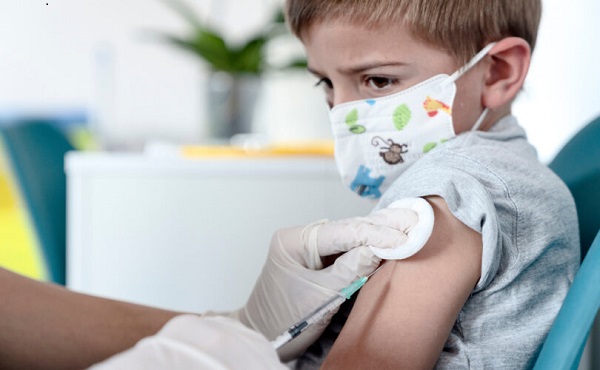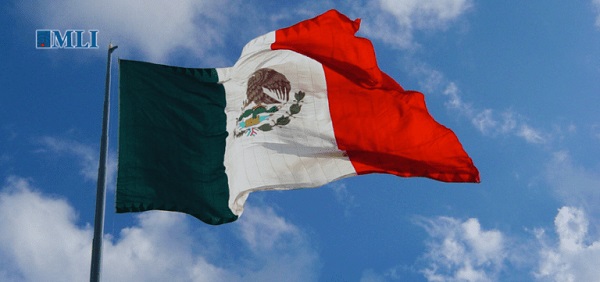Alberta
Update – Your event has been cancelled
Update: Ilan appeared with Edmonton radio station 630 CHED’s J’lyn Nye on October 5th, 2020 where they discussed the severe challenges in the live event industry. You can read Ilan’s original story below.
Your Event Has Been Cancelled
By Ilan Cooley
The live event industry is in serious trouble. It was the first sector to go dark due to the pandemic, and it is expected to be the last to be allowed back to work.
The people behind the scenes of your favourite events are the mavericks and risk takers you likely don’t know about. They create the events that make you smile until your face hurts, cheer until you lose your voice, and dance until you can’t stand up. They make the magic that fills your social feeds, and the moments that live in your memories.
You may have gotten an email saying “your event has been cancelled” – they lost their livelihood.
“People don’t understand how bullseye targeted this virus was at our industry,” says Jon Beckett, owner of Production World. “It was a 100% bullseye. You couldn’t hit it more dead centre. It’s not like it hurt us – it took it away. People don’t understand that until you talk to them about your industry.”

Production World Staff
Beckett’s company used to employ 50 people. Having lost more than 200 events so far, they have laid off 35 people. Their 25,000 square foot warehouse contains almost seven million dollars worth of staging, lighting and other production equipment.
“We have to house that inventory,” he says. “It is not like we can sell it.”
Similarly, Fort Saskatchewan based Superior Show Service has two separate warehouses full of rental items nobody currently needs, plus tax bills and insurance due. As a 35-year-old family-run event rental company, they cater to tradeshows and large events. Some of the 35 staff they laid off in March have been hired back after accessing relief programs, but with more than 80 events already cancelled, owner Chris Sisson worries about the future.
“It feels like the carpet kicked out from under you,” he says. “I’ve always been able to provide for a great number of families, not just my own, and today I have no idea how to provide for my own. I have been in this industry my entire life, and now I have no idea what to do. It is truly humbling and dumbfounding.”

Chris Sisson of Superior Show Service
Event promoter Mike Andersson prefers not to dwell on what has been lost, instead focusing on building something consumers will want to come back to when it is over. He knows how to manage complex logistics and bring large groups of people together. Even when faced with severe restrictions for events, his company, Trixstar, was busy creating pandemic proof event manifestos, and blue-sky concepts for safe gatherings.
“When everything came crashing down we were putting up material about what events look like after this, and showing some optimism,” he says. “It is important to get people together and to celebrate.” He admits there are good days and bad days. “It is a rollercoaster of emotions,” he says. “Obviously we feel terrible. It affects us, but it affects so many companies. From the security companies, to the ticketing companies, to the tent company, to the production company – all those people are affected.”
Event photographer Dale MacMillan also worries about the people behind the scenes. He has lost more than 100 days of shooting for professional sporting events, large music events, festivals and fairs, which makes up about 60% of his income, and he knows others are in the same situation.

Dale MacMilon takes event photos like this shot of Trixstar
“There’s a guy sitting out there with probably a quarter section of land and he’s probably got 5500 porta potties that are out at ten to 20 events throughout the month, and he is affected tremendously,” says MacMillan. “I see some of the guys that are usually in the business of trucking the machinery to set up the fairs and festivals that are delivering for Amazon now. I look at all of those people who work the booths to break plates. They are not working at all. How else is a guy who owns a plate breaking booth going to get any other business?”
Even artists like Clayton Bellamy are wondering how to pay their bills. As a successful singer/songwriter and member of Canada’s top country band, The Road Hammers, he wishes the gold records on his wall represented a decent living, but admits there is no money to be made without touring. With up to 90% of his income derived from live shows, and almost no revenue from music streaming, he says he will do whatever it takes to feed his family.

Clayton Bellamy performing (pre-COVID)
“Obviously I have kids and that comes first before anything,” he says. “The main thing to do is to find work.” He also knows lack of touring impacts others. “Our band employs a lot of people. It is not just me on the stage – it is the tour manager, and the person in the office answering the phones at the management company, and the manager. We help employ 50 people. If you think about the industry as a whole, there are a lot of people relying on that trickle-down.”

Clayton Bellamy
Beckett says the model for live events has changed forever.
“If we are going to collapse, then we are going to give it all we can. Right now, we are optimistic that we can somehow find ways to juggle.”
Production World is streaming virtual events to online audiences, and delivering reimagined AHS compliant live events with a mobile stage, video wall, and in-car audio for things like graduations, weddings, movies, drive in music events, and even funerals. They are retrofitting churches for virtual services, and recording content to deliver music and sermons to parishioners.
Sisson suggests his industry should collaborate with government and other industry professionals to develop a plan, like doing events by the hour to control occupancy counts, disinfecting surfaces, contact tracing and testing, and utilizing existing technologies like temperature checks and facial recognition.
“I will be ashamed of our industry if we cannot have something that is approved and a way to conduct ourselves by October,” he says. “At the end of the day there are a lot of livelihoods that need to get looked after.”
MacMillan says the advice his parents gave him to plan for a rainy day was valid. He will get creative with other revenue sources and try to take advantage of programs and subsidies.
“If it helps you along one more month, it is one more month that you can make it until things open up again.”
Bellamy tries to keep his mental health in check by maintaining a rigorous schedule of practicing, writing, and working on existing projects. He plans to finish a new record so he can hit the ground running when touring resumes.
“Right now, I have no income,” he says. “I don’t have a safety net. I don’t have a plan B.”
He says if people want to support their favourite artists they should buy music and merchandise directly, like and share posts and music on social media, and send a letter to the government to help change laws that impact fair pay for artists’ streaming rights.
A return to “normal” is a long way off, and no matter when life starts to feel unrestricted again the world will be altered, and things will be different. Behind the scenes, the event industry not just trying to reinvent itself, it is fighting for survival.
“People don’t think about the human side of it and all that goes into it and all the different companies that come together to produce an event,” says Anderson. “Nobody in the entertainment industry is making a dollar right now. Everyone has to figure out how to survive this, and survive it together. So, my optimism is, I think a lot of companies are going to survive this because they are working together. They are going to support each other once we come out the other side.”
On September 22nd Canadian event industry technicians, suppliers and venues from across the country will Light Up Live events in red to raise awareness for the live event industry – which is still dark.
This article was originally published on September 22, 2020.
Read more on Todayville.
Alberta
On gender, Alberta is following the science

Despite falling into disrepute in recent years, “follow the science” remains our best shot at getting at the truth of the physical sciences.
But science, if we are to place our trust in it, must be properly defined and understood; it is at its essence an ever-changing process, a relentless pursuit of truth that is never “settled,” and one that is unafraid to discard old hypotheses in the face of new evidence.
And it is in this light—in the unforgiving glare of honest science—that Alberta Premier Danielle Smith’s three new legislative initiatives around gender policy are properly understood, notwithstanding the opprobrium they’ve attracted from critics.
Bill 26, the Health Statutes Amendment Act, proposes to prohibit the prescription of puberty blockers and cross-gender hormones for the treatment of gender dysphoria to youth aged 15 and under. It would allow minors aged 16 and 17 to begin puberty blockers and hormone therapies for gender “reassignment” and “affirmation” purposes only with parental, physician, and psychologist approval. The bill also prohibits health professionals from performing sex reassignment surgeries on minors.
Bill 27, the Education Amendment Act, seeks to enshrine parents’ rights to be notified if their kids change their names/pronouns at school, and it gives parents the right to “opt in” to what sort of gender and sex education their kids are exposed to in school.
And Bill 29, the Fairness and Safety in Sports Act, is designed to protect females in sports by ensuring that women and girls can compete in biological female-only divisions, while supporting the formation of co-ed opportunities to support transgender athletes.
Each of these initiatives is entirely reasonable, given what we know of the science underpinning “gender care,” and of the undeniable advantages that a male physique confers upon biological males competing in sports.
The notion that the trifecta of puberty blockers, cross-gender hormones, and revisionist surgery is a pathway to good health was a hypothesis initially devised by Dutch researchers, who were looking to ease the discomfort of transgender adults struggling with incongruence between their physical appearance and their gender identities. As a hypothesis, it was perhaps reasonable.
But as the UK’s Cass Review exposed in withering detail last spring, its premises were wholly unsupported by evidence, and its implementation has caused grievous harm for youth. As Finnish psychiatrist Riittakerttu Kaltiala, one of the architects of that country’s gender program, put it last year, “Gender affirming care is dangerous. I know, because I helped pioneer it.”
It’s no accident, then, that numerous European jurisdictions have pulled back from the “gender affirming care” pathway for youth, such as Sweden, Finland, Belgium, the Netherlands, and the United Kingdom.
It makes perfect sense that Canadians should be cautious as well, and that parents should be apprised if their children are being exposed to these theories at school and informed if their kids are caught up in their premises.
Yet the Canadian medical establishment has remained curiously intransigent on this issue, continuing to insist that the drug-and-surgery-based gender-affirming care model is rooted in evidence.
Premier Smith was asked by a reporter last month whether decisions on these matters aren’t best left to discussions between doctors and their patients; to which she replied:
“I would say doctors aren’t always right.”
Which is rather an understatement, as anyone familiar with the opioid drug crisis can attest, or as anyone acquainted with the darker corners of medical history knows: the frontal lobotomy saga, the thalidomide catastrophe, and the “recovered memories of sexual abuse” scandal are just a few examples of where doctors didn’t “get it right.”
As physicians, we advocate strongly for self-regulation and for the principle that medical decisions are private matters between physicians and patients. But self-regulation isn’t infallible, and when it fails it can be very much in the interests of the public—and especially of patients—for others to intervene, whether they be journalists, lawyers, or political leaders.
The trans discussion shouldn’t be a partisan issue, although it certainly has become one in Canada. It’s worth noting that Britain’s freshly elected Labour Party chose to carry on with the cautious approach adopted by the preceding administration in light of the Cass Review.
Premier Smith’s new polices are eminently sensible and in line with the stance taken by our European colleagues. None of her initiatives are “anti-trans.” Instead, they are pro-child, pro-women, and pro-athlete, and it’s difficult to see how anyone can quibble with that.
Dr. J. Edward Les, MD, is a pediatrician in Calgary, senior fellow at the Aristotle Foundation for Public Policy, and co-author of Teenagers, Children, and Gender Transition Policy: A Comparison of Transgender Medical Policy for Minors in Canada, the United States, and Europe.
Alberta
Alberta mother accuses health agency of trying to vaccinate son against her wishes

From LifeSiteNews
Alberta Health Services has been accused of attempting to vaccinate a child in school against his parent’s wishes.
On November 6, Alberta Health Services staffers visited Edmonton Hardisty School where they reportedly attempted to vaccinate a grade 6 student despite his parents signing a form stating that they did not wish for him to receive the vaccines.
“It is clear they do not prioritize parental rights, and in not doing so, they traumatize students,” the boy’s mother Kerri Findling told the Counter Signal.
During the school visit, AHS planned to vaccinate sixth graders with the HPV and hepatitis B vaccines. Notably, both HPV and hepatitis B are vaccines given to prevent diseases normally transmitted sexually.
Among the chief concerns about the HPV vaccine has been the high number of adverse reactions reported after taking it, including a case where a 16 year-old Australian girl was made infertile due to the vaccine.
Additionally, in 2008, the U.S. Food and Drug Administration received reports of 28 deaths associated with the HPV vaccine. Among the 6,723 adverse reactions reported that year, 142 were deemed life-threatening and 1,061 were considered serious.
Children whose parents had written “refused” on their forms were supposed to return to the classroom when the rest of the class was called into the vaccination area.
However, in this case, Findling alleged that AHS staffers told her son to proceed to the vaccination area, despite seeing that she had written “refused” on his form.
When the boy asked if he could return to the classroom, as he was certain his parents did not intend for him to receive the shots, the staff reportedly said “no.” However, he chose to return to the classroom anyway.
Shortly after, he was called into the office and taken back to the vaccination area. Findling said that her son then left the school building and braved the sub-zero temperatures to call his parents.
Following his parents’ arrival at the school, AHS claimed the incident was a misunderstanding due to a “new hire,” attesting that the mistake would have been caught before their son was vaccinated.
“If a student leaves the vaccination center without receiving the vaccine, it should be up to the parents to get the vaccine at a different time, if they so desire, not the school to enforce vaccination on behalf of AHS,” Findling declared.
Findling’s story comes just a few months after Alberta Premier Danielle Smith promised a new Bill of Rights affirming “God-given” parental authority over children.
A draft version of a forthcoming Alberta Bill of Rights provided to LifeSiteNews includes a provision beefing up parental rights, declaring the “freedom of parents to make informed decisions concerning the health, education, welfare and upbringing of their children.”
-

 Brownstone Institute6 hours ago
Brownstone Institute6 hours agoThe Most Devastating Report So Far
-

 Economy18 hours ago
Economy18 hours agoCOP 29 leaders demand over a $1 trillion a year in climate reparations from ‘wealthy’ nations. They don’t deserve a nickel.
-

 Alberta16 hours ago
Alberta16 hours agoOn gender, Alberta is following the science
-

 Energy17 hours ago
Energy17 hours agoOttawa’s proposed emission cap lacks any solid scientific or economic rationale
-

 Bruce Dowbiggin5 hours ago
Bruce Dowbiggin5 hours agoCHL Vs NCAA: Finally Some Sanity For Hockey Families
-

 Brownstone Institute2 days ago
Brownstone Institute2 days agoFirst Amendment Blues
-

 Crime2 days ago
Crime2 days agoMexican cartels are a direct threat to Canada’s public safety, and the future of North American trade
-

 Business2 days ago
Business2 days agoDEI gone?: GOP lawmakers prep to clean house in federal government





